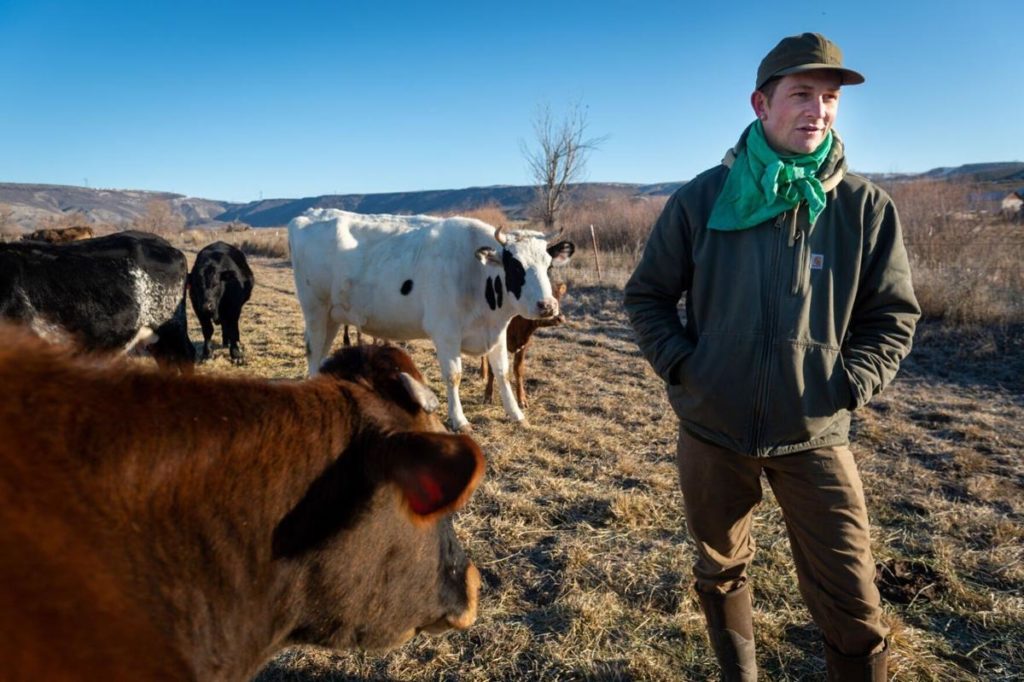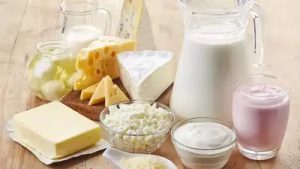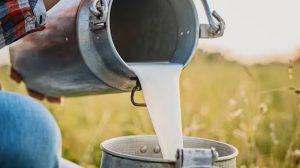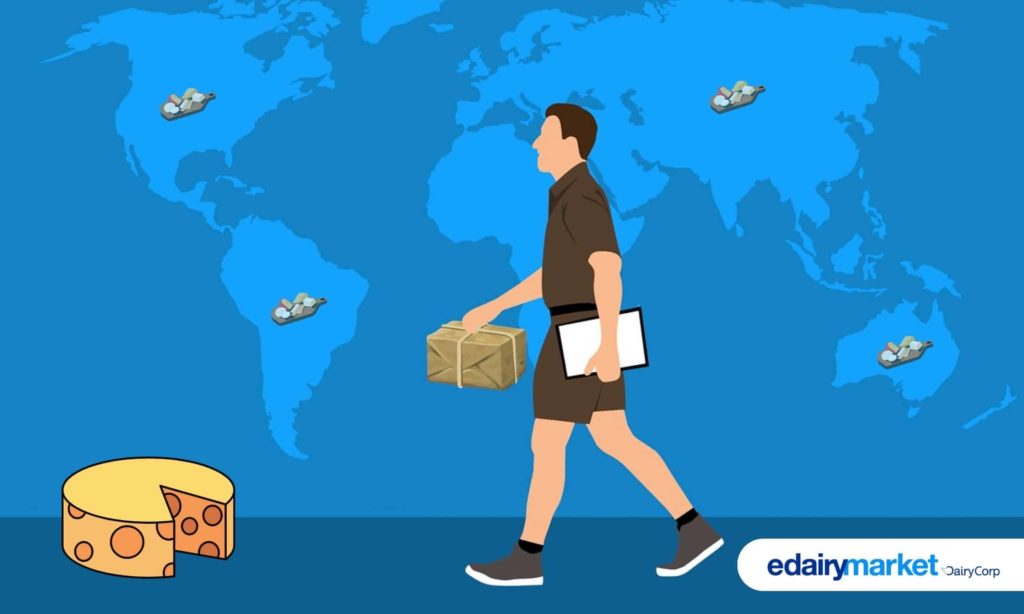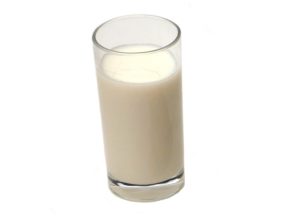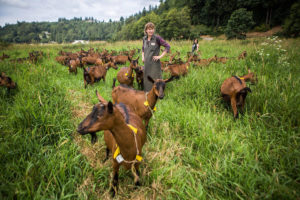Over the past half-century, dairy farms increased in size to better support growing populations and stay profitable.
Wilder Jones, a resident of Glenns Ferry, wants people to know there is another option. He owns Wild Spaces Farm, a micro dairy that produces raw milk.
“I hope that I can be a model for other communities so that we can all have at least one milk guy down the road that helps service the community,” Jones said.
Unfortunately, the landscape of the market has forced producers to add more and more cows to stay in business, Jones said.
“You can drive around the Magic Valley and see abandoned dairies and those were like 30 cows and 40 cows and now they need to work up into the thousands,” he said.
Two small southern Idaho dairies, Old Almo Creamery in Almo and Picabo Desert Farm in Richfield, closed last year.
Micro dairies allow for consumers to have more awareness of where their food comes from, Jones said. Smaller operations also have a smaller environmental footprint due to lower energy use, less need for transportation, and the ability to recycle waste on the farm.
Jones is not the first family member to produce food differently. His father is a third-generation farmer and rancher who owns King’s Crown Organic Farm. The farm supplies southern Idaho with cattle, hay, sweet corn, feed corn, onions, potatoes, squash, dry beans, melons and more.
Although Jones has helped his dad for years, his family doesn’t have experience with dairy farming.
“I’m not a generational dairy farmer so there’s a lot of stuff I’m learning, but I just thought, ‘Man, if I can produce this myself, I can get to a place that will be really near and dear to me,’” he said. “And I really do enjoy the company of cows.”
Each of his cows has a name: Pumpkin, Betty, Harley, Bambi, Reeba, Ferdinand the Bull and Caramel. The herd will stay under 10 cows.
The breeds range from Holstein and Jersey to Brown Swiss and Gir. Gir cattle — also known as Gyr — originated in India and are tolerant of hot temperatures.
“I wanted to get into this and have something to work towards genetically that would be unique and well-adapted,” Jones said.
Collars for cows: How technology is changing Magic Valley farming
Starting your own business is a daunting task, especially with a micro dairy that will have a smaller income. Jones received support from the Sun Valley Institute for Resilience.
A nonprofit based in Hailey, the institute’s goal is to advance community resilience through education, collaboration and investments.
Nate Twichell, deputy director for the institute, said part of their work involves creating relationships with producers and helping everyone have access to fresh, locally grown food.
Jones received assistance through the institutes’ Impact Idaho Fund. His application was selected for a $75,000 zero-interest loan.
These loans help small operations get started and provide business owners with the tools to make good decisions and create lasting business plans, Twichell said.
Support Local Journalism
Now, more than ever, the world needs trustworthy reporting—but good journalism isn’t free. Please support us by making a contribution.
“It’s like the adage that you can give a person a fish or you can teach them how to fish; it’s that idea that recoverable grants show that accountability to the process of building a solid business model,” he said.
The knowledge of the institute has been invaluable, Jones said.
“I told them, ‘I feel like I have an MBA now,’” Jones said. “Working with them because they are on the financial side of things, it’s been so illuminating and reassuring that I am dotting all the I’s and crossing all the T’s.”
The money he received will help him build a milking barn and parlor. It will also be used to acquire animals, equipment, and the certification required for his operation.
Because Jones will be selling unpasteurized milk, the Idaho State Department of Agriculture requires additional steps to ensure safety.
Raw milk can be a sticky topic, Jones said. The term refers to milk that has not been pasteurized, a process that involves heating the liquid to a specific temperature for a short period of time to kill potentially harmful bacteria.
Raw-milk laws differ between states, and, in some places, raw milk is illegal to sell in stores.
“It’s hard to know why it’s become so controversial, because deli meat, seafood, spinach, greens…,” he said, are more likely to have a food-borne illness over the last 40 years, according to his own independent research.
“And there are actually more cases for (food-born illnesses from) pasteurized milk than raw milk over the last four decades, so it’s blown out of proportion,” he said.
Jones encourages anyone who wants to try raw milk to talk to their doctor, do their own independent research, then try a small amount. People may react differently.
“I don’t take food-borne illnesses lightly but I know that I am going to produce it in a safe and clean way and not hurt anyone,” he said.
Idaho has favorable raw-milk laws, which changed in January. Previously, the law allowed farmers with up to three cows or seven goats to sell raw milk if they complied with both monthly and yearly testing.
The new rules don’t have a limit on the number of animals, however, producers are still required to have their animals’ blood tested once a year. Additionally, raw milk must be sold with a label, in size 10 font, that says, “This product has not been pasteurized and could have harmful bacteria.”
Jones thinks it is a good idea to go above and beyond the new rules.
“As a dairy farmer, I think you should have your milk tested once a month and I am going to have to take that on myself and that will be my own expense,” he said.
In the beginning, starting your own business feels like driving a stick shift and popping the clutch, he said.
“I can get up to this point and now I am waiting on someone to come insulate,” he said. “I can do a couple of things on my own and now I am waiting on some guy to come do the flooring.”
Everything builds up, Jones tells new entrepreneurs.
“Take steps every day, even if they are seemingly small.”

